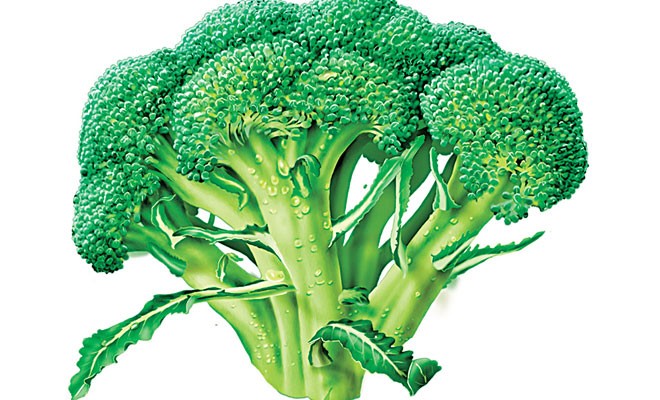
Why wait for the next crop to burn off those calories when there is enough fresh, winter variety to make for a healthy yet delicious diet?

When it comes to staying healthy and following a diet rich in nutrition, seasonable vegetables are your best bet. There are plenty of vegetables that grow throughout winter other than just potatoes and onions, which offer a much-needed dose of nutrients as well as make for delectable dishes, if used creatively. Here is a list of five vegetables your pantry should always be stocked with as winter strikes:
Broccoli
This dark, leafy green may leave a bitter taste in one’s mouth, literally, but it’s undoubtedly a power source of vitamins and minerals. Not only does it reduce the probability of serious health issues like diabetes, and obesity, but it also refreshes and revitalizes one’s skin, hair and metabolic rate making one feel a lot younger. It is particularly a great source of iron and hence, beneficial during pregnancy.
If you have developed a palate for bitter tasting food then it’s best to eat it raw, or steamed, to maximize the nutrient intake. However, you can totally spruce it up by adding it to your omelet paired with some feta cheese or amp it up to make a wholesome salad alongside avocado, strips of chicken, and parmesan cheese drizzled with some olive oil.
Carrot
If an apple a day keeps the doctor away, so does a carrot. Sweet, crunchy and aromatic, carrots are known for the health benefits they offer. We have all grown up hearing how carrots enhance our vision but that’s not just it. Carrots are also an excellent source of fibre and vitamins A, C, E and K that strengthen one’s immune system. Research suggests that carrots help in reducing the risk of cardiovascular disease.
Boil it, steam it, or roast it for scrumptious bowls of stew and soup, or just bite into it raw - of course with the skin peeled. In fact, baby carrots with herbed dips make for an interesting evening snack. Shred or dice to use in baked goods like muffins and cakes to satisfy your dessert cravings, or in salad/wraps for those who enjoy savoury more.
Garlic
Easy to grow, this one is more useful than warding off vampires or baiting more fish. Garlic is not just a versatile ingredient but rather a valuable one. Its antioxidizing properties boost your immune and cardiovascular systems. With regular intake, conditions like acne, common cold, hair loss, low-high blood pressure, fatigue, athlete’s foot and even cancer growth will be worries of the past.
Both roasted and unroasted garlic can be used in a number of dishes as medicinal herb or a culinary spice. Garlic tea is a winter essential and so are hummus dips with a hint of the allium sativum.
Peas
Peas do not just add the ‘green’ on your day’s menu but are also rich in protein, fiber and micronutrients. The high fiber content helps you feel full, making it the perfect nourishment for weight loss. Lutein and vitamin A in peas are good for vision whereas vitamin K helps keep your bones strong by making it easier for you to absorb calcium. It prevents signs of aging, helps reduce depression, ensures good heart health and improves your immune system.
Peas provide great flavour when sautéed and mixed with fresh herbs and spices. Snow peas and snap peas can be eaten raw, stir-fried or in curry form though the cooking process will cause them to become sweeter.
Turnips
These low-calorie purple-and-white bulbs are a good source of anti-oxidants, minerals, vitamins and dietary fiber. They are available all winter long. These cruciferous vegetables, are perhaps one of the most neglected, but are known to reduce the risk of cancer. They also have great anti-inflammatory properties which serve as a shield against heart-related diseases. They are rich in fiber and thus, help improve the digestive system.
Both root and top greens can be used in cooking. Young turnips are a great addition to fresh, uncooked salads lending them a slightly sweet taste. When diced, it mixes well with other vegetables and can be used to prepare a variety of stews.